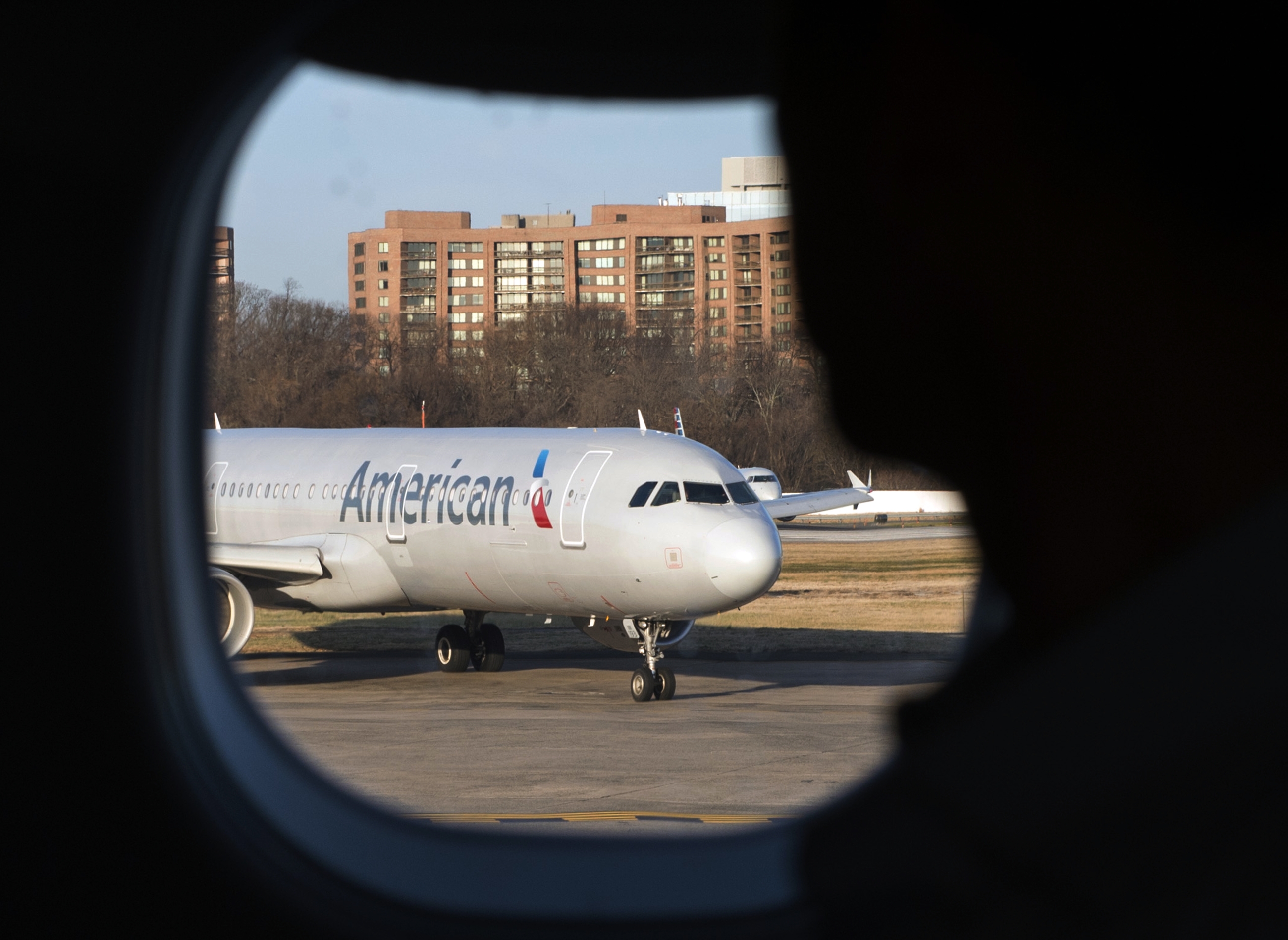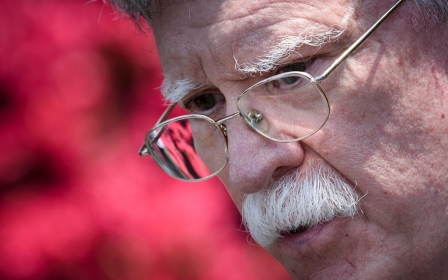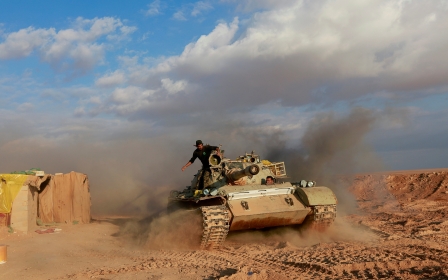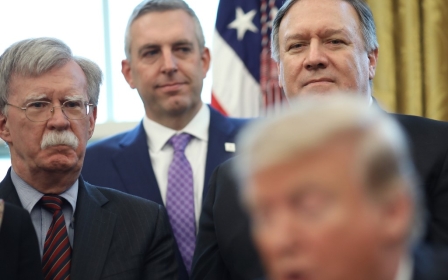US issues warning on airspace near Gulf as Iran tensions simmer

American commercial airlines have been advised to avoid flying over the Arabian Gulf, as tensions continue to mount between the US and Iran.
In a warning issued on Thursday, the Federal Aviation Authority said that US commercial aircraft could be "misidentified" if they choose to fly over the region.
New MEE newsletter: Jerusalem Dispatch
Sign up to get the latest insights and analysis on Israel-Palestine, alongside Turkey Unpacked and other MEE newsletters
The FAA's advice was circulated late on Friday by US diplomats and came amid warnings from Lloyd's of London of increasing risks to maritime shipping in the region.
"Heightened military activities and increased political tensions in the region which present an increasing inadvertent risk to US civil aviation operations due to the potential for miscalculation or misidentification," the FAA said in a statement.
Earlier this week, the United States pulled non-essential diplomatic staff from its embassy in Baghdad following weekend attacks on four oil tankers in the Straits of Hormuz, the strategic corridor through which one fifth of the world's oil passes. Iran has denied responsibility.
An Iraqi oil official also confirmed on Saturday that Exxon Mobil had evacuated its foreign staff from an Iraqi oilfield.
Sources inside Exxon and the Iraqi oil ministry told Reuters that Exxon's foreign staff members had been evacuated in phases to Dubai.
Tensions between Tehran and Washington
On Friday, Mohammad Saleh Jokar, the Iranian Revolutionary Guard's deputy commander, said that Iranian missiles could reach US warships in the Gulf.
Jokar's comments came after Washington announced a deployment of cruise missiles and a battleship to the Persian Gulf, and after B-52 bombers arrived at a US base in nearby Qatar.
"Even our short-range missiles can easily reach [US] warships in the Persian Gulf," Jokar, the deputy for parliamentary affairs of Guards, was quoted by Fars news agency as saying.
"America cannot afford the costs of a new war, and the country is in a bad situation in terms of manpower and social conditions," he said.
The war of words continued on Friday, with US President Donald Trump tweeting that it was "a good thing" that Iran was confused by US policy.
"At least Iran doesn't know what to think, which at this point may very well be a good thing!" he tweeted.
Iranian Foreign Minister Mohammad Javad Zarif had said on Thursday that there was "no possibility" of negotiations with the United States to ease increased tensions, in response to an earlier Trump tweet calling for talks.
America cannot afford the costs of a new war, and the country is in a bad situation in terms of manpower and social conditions
-Mohamed Saleh Jokar, Iranian Revolutionary Guards
In the face of a what Iran views as "psychological warfare" by the US, it has sought support from China, which on Friday railed against what it said was the United States’ "long arm jurisdiction".
"China resolutely opposes the US implementation of unilateral sanctions and so-called 'long arm jurisdiction,' understands the current situation and concerns of the Iranian side, and supports the Iranian side to safeguard its legitimate rights and interests," China's foreign ministry paraphrased State Councillor Wang Yi as saying to Zarif on Friday.
China was one of the eight global buyers - the others being India, Turkey, Japan, South Korea, Taiwan, Italy and Greece - that was allowed to import Iranian crude oil before the US ended waivers to sanctions on Iranian oil sales in early May.
Zarif also called on China and other signatories to the 2015 nuclear deal to take "practical steps" to save the accord.
"Safeguarding the [nuclear accord] is possible through practical measures, and not only through supportive statements," Zarif was quoted as saying by the state news agency IRNA, during a trip to China and Japan.
Last week, Iran notified the five remaining signatories to the accord that it would scale back some commitments under its 2015 nuclear deal, a year after Washington left the pact and reimposed sanctions on Tehran. Tehran has asked the other signatories, including Germany, Britain and France, to help protect its economy from sanctions.
Yet despite Washington's campaign of "maximum pressure" against Iran, the Islamic Republic has vowed to keep selling oil to its main customers, especially China, even if it requires using indirect means.
There were signs on Friday that fallout between the countries was being felt elsewhere after British insurance market Lloyd's of London widened its list of areas in and around the Gulf posing "enhanced risk for marine insurers" after a still-mysterious "attack" on tankers anchored off Fujairah, an Emirati port.
The UK on Friday warned British-Iranian dual nationals against all travel to Iran, citing the recent "arbitrary detention and mistreatment" of such citizens.
Middle East Eye delivers independent and unrivalled coverage and analysis of the Middle East, North Africa and beyond. To learn more about republishing this content and the associated fees, please fill out this form. More about MEE can be found here.




